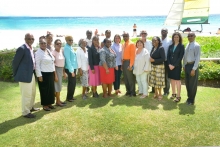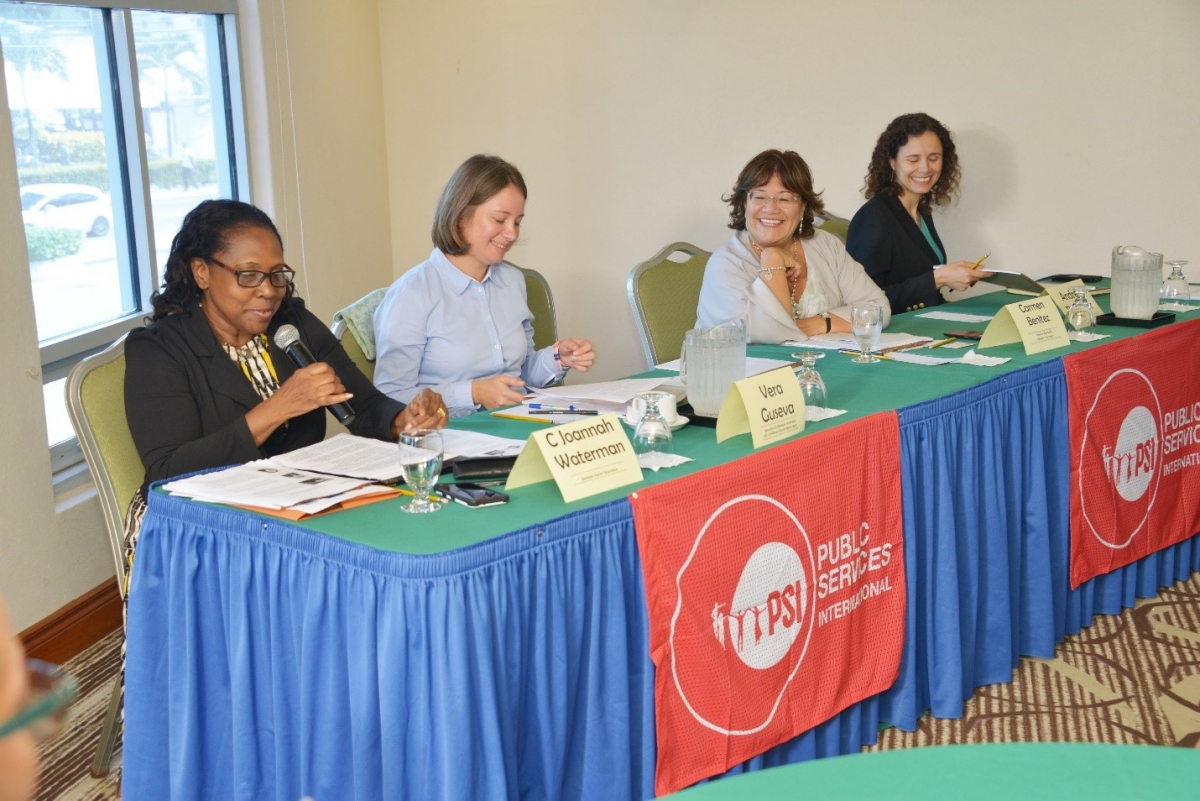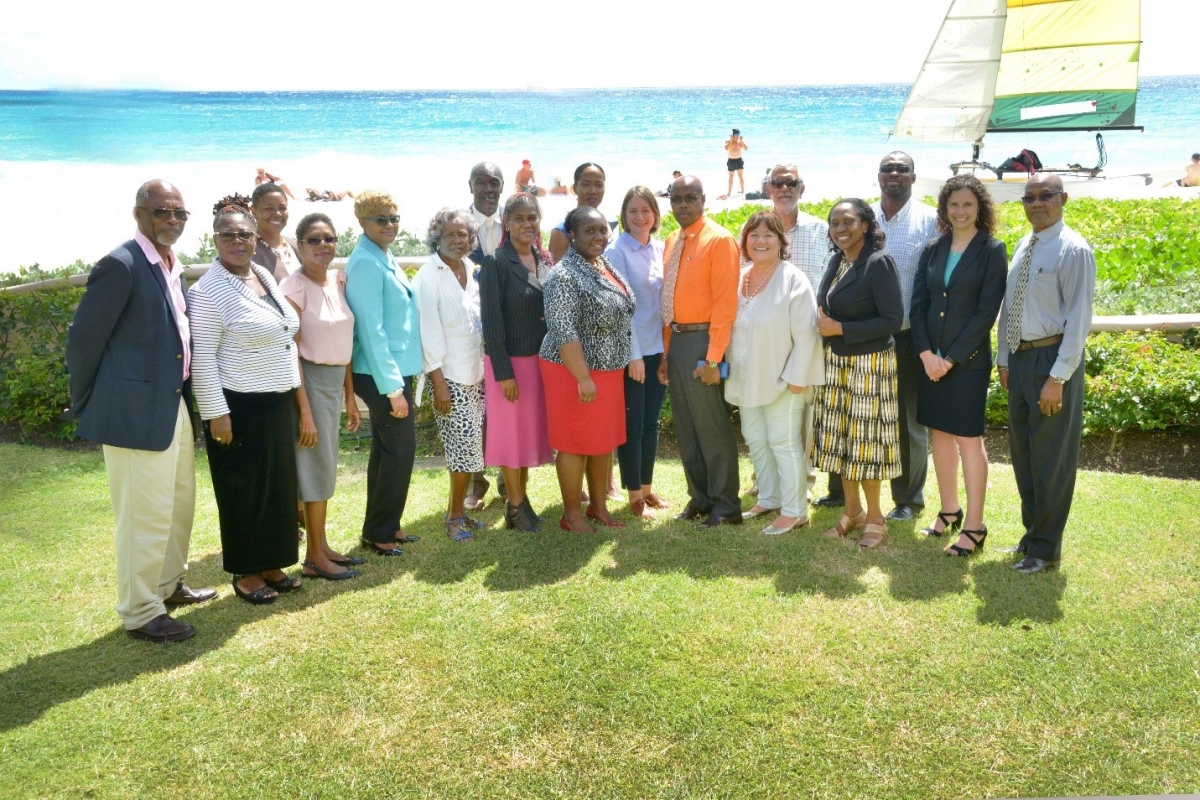An equal seat at the table

The ILO’s Equal Remuneration Convention, 1951, (No. 100) is one of the eight core or fundamental international labour standards. Barbados ratified the convention in 1974. “Equal remuneration for men and women workers for work of equal value” refers to rates of remuneration established without discrimination based on sex.
- The implementation of the ILO convention 100 involves job comparison.
- There are methods to assess, identify and objectively compare the relative value of work.
- It is necessary to develop job evaluation systems to avoid prejudices or gender stereotypes.

C Joannah Waterman, president of the Barbados Nurses' Association (BNA) chairs the opening session of the workshop. Also pictured from left: Vera Guseva, ILO workers’ specialist for the Caribbean; Carmen Benitez G, ILO ACTRAV, Lima; Andrea Bentancor, Independent Consultant. Photo: Tempro Photographic Services
PSI’s affiliates in Barbados were among more than 20 representatives from the Barbados Ministries of Health & Wellness, Labour and Social Partnership Relations, and the Bureau of Gender Affairs and the Barbados Workers’ Union (BWU) who came together November 5 to 9 to learn about gender-neutral job evaluation concepts and methods. The aim was to explore the application of gender-neutral pay systems in the workplace and especially in the health and social services sector. Sandra Massiah, PSI’s sub-regional secretary for the Caribbean coordinated the workshop in collaboration with the Workers’ Activities branch (ACTRAV) of the ILO’s Latin America & Regional Office.
The primary objective was to launch a pilot pay equity project in the Health and Social Services sector in Barbados.
The pilot project in Barbados continues the collaborative work between ILO ACTRAV and the PSI on gender-neutral job evaluation methods. In early October, president of the Barbados Nurses’ Association, C Joannah Waterman, represented PSI at a workshop in Panamá on ‘Promoting pay Equity through Social Dialogue and Collective Bargaining”. The workshop was organised by the ILO’s Turin Centre and the regional office for Latin America and the Caribbean. At that workshop, she was able to learn more about the Equal Pay International Coalition (EPIC), led by the ILO, UN Women, and the OECD. The Coalition’s goal is to achieve equal pay for women and men everywhere. EPIC supports governments, employers, workers, and their organisations to make concrete and coordinated progress towards this goal. It is the only multi-stakeholder partnership working to reduce the gender pay gap at the global, regional and national levels.

Participants in the Gender-Neutral job evaluation workshop hope for results as bright as the day behind them. Photo: Tempro Photographic Services
In describing her experiences, Sis Waterman stated, “My eyes were opened. The amount of information and experiences I gleaned brought new perspectives to what we do and how we do it. This is a big issue and I am looking forward to the practical work in the health sector in Barbados. We need this.”
PSI has a long history of activism and campaigning on equal pay for work of equal value and this has contributed to the increased visibility and focus internationally. For Public Services International, this initiative in Barbados responds to the many challenges public services unions face in asserting the importance and universality of quality public services to ensure just and sustainable societies. Quality public services are critical to the achievement of the sustainable development goals and gender equality is central and pivotal to the implementation of the SDGs.
The five-day workshop ended with the adoption and signing of a commitment to carry out a pilot study on gender-neutral job evaluation in the Queen Elizabeth Hospital and the Psychiatric Hospital. This study will have the technical and financial assistance of the International Labour Organisation (ILO).

